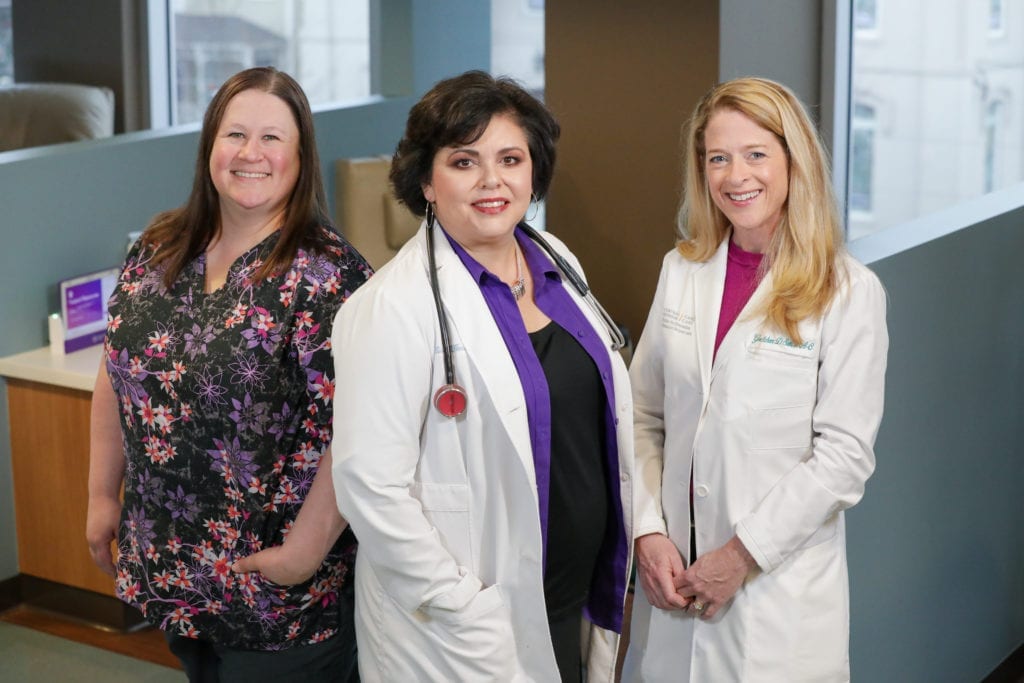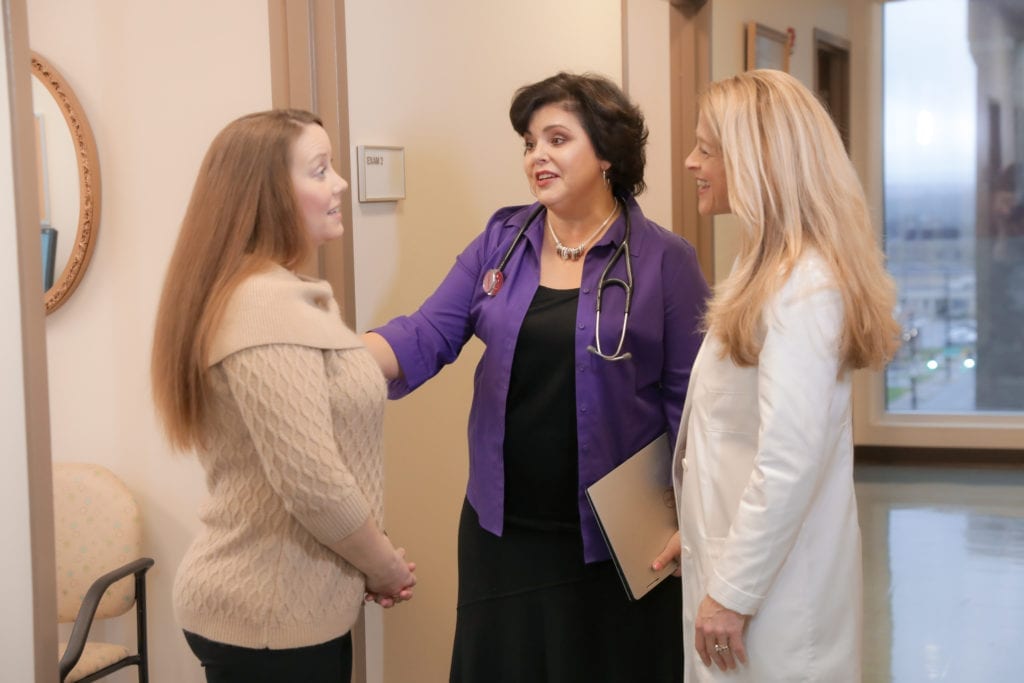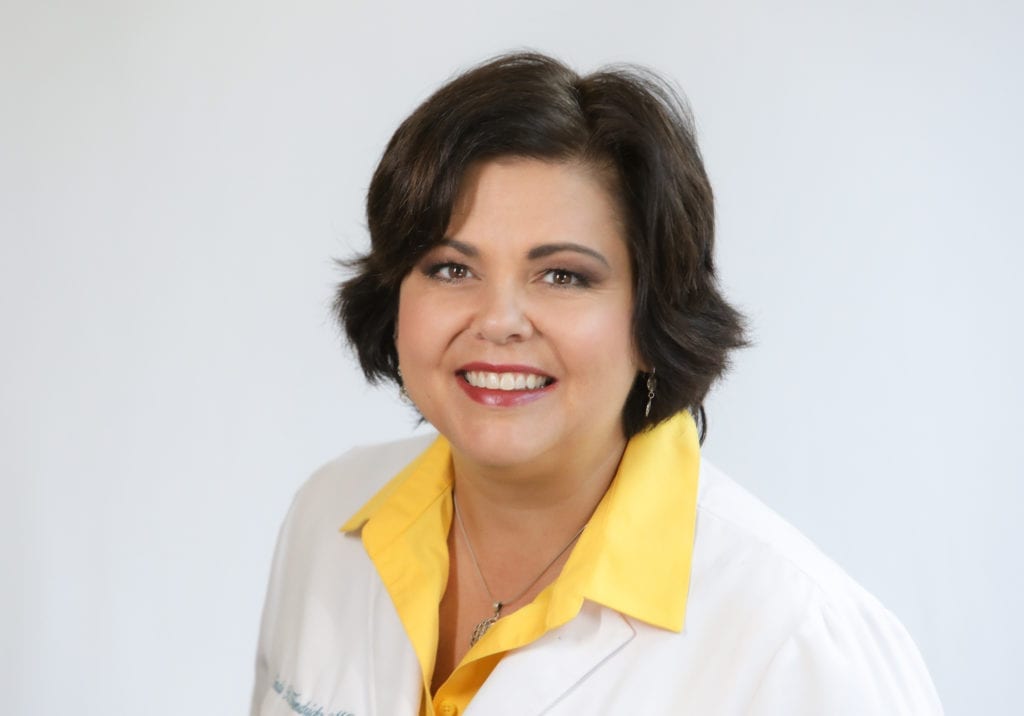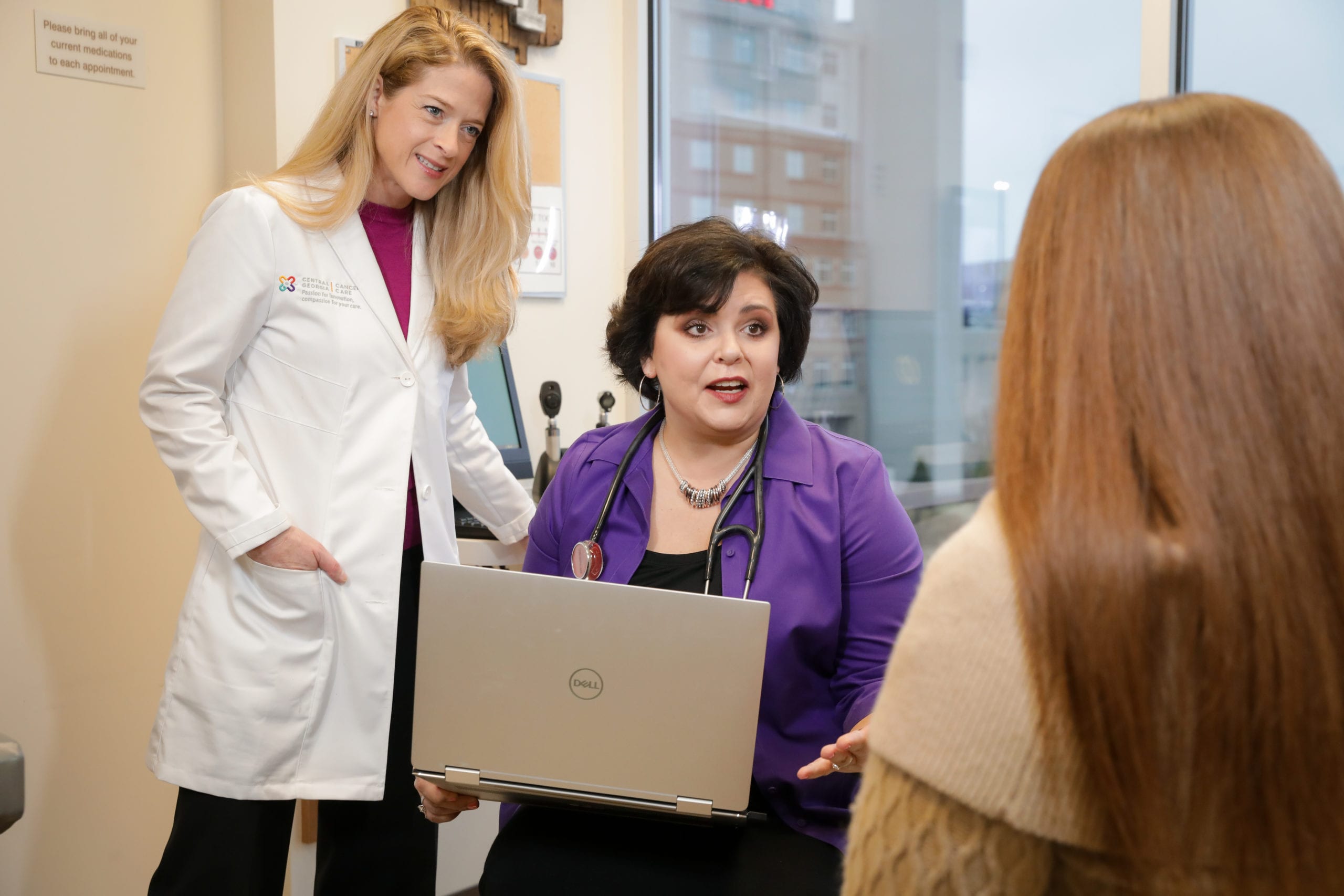Breast Cancer What is Breast Cancer?



What is Breast Cancer?
Breast cancer is a group of diseases in which cells in breast tissue change and divide uncontrollably, typically resulting in a lump or mass. Most breast cancers begin in the lobules (milk glands) or in the ducts that connect the lobules to the nipple. Approximately one in eight women will be diagnosed with breast cancer in their lifetime.
.embed-container { position: relative; padding-bottom: 56.25%; height: 0; overflow: hidden; max-width: 100%; } .embed-container iframe, .embed-container object, .embed-container embed { position: absolute; top: 0; left: 0; width: 100%; height: 100%; }
Symptoms of Breast Cancer
Breast cancer typically has no symptoms when the tumor is small and most easily treated, which is why regular mammogram screenings are important for early detection. Most masses seen on a mammogram and most breast lumps turn out to be benign (not cancerous). When cancer is suspected, tissue for microscopic analysis is usually obtained from a needle biopsy (fine-needle or larger core-needle) and less often from a surgical biopsy.
- The most common physical sign is a painless lump either in the breast or underarm lymph nodes.
- Less common signs and symptoms include:
- Breast pain or heaviness
- Persistent changes, such as swelling, thickening, or redness of the skin
- Nipple changes, such as spontaneous discharge (especially if bloody), scaliness, or retraction.
Any persistent change in the breast could be serious and should be evaluated by a physician.
Types of Breast Cancer Types of Breast Cancer
Types of breast cancer include:
Ductal Carcinoma in Situ
Ductal carcinoma in situ (DCIS) is a non-invasive cancer where abnormal cells have been found in the lining of the breast milk duct. Ductal carcinoma in situ is very early cancer that is highly treatable, but if it’s left untreated or undetected, it can spread into the surrounding breast tissue.
Invasive Ductal Carcinoma
The abnormal cancer cells that began forming in the milk ducts have spread beyond the ducts into other parts of the breast tissue. Invasive cancer cells can also spread to other parts of the body.
Inflammatory Breast Cancer
Inflammatory breast cancer is an aggressive and fast-growing breast cancer in which cancer cells infiltrate the skin and lymph vessels of the breast. It often produces no distinct tumor or lump which can be felt and isolated within the breast. Symptoms begin to appear when the lymph vessels become blocked by the breast cancer cells.
Metastatic Breast Cancer
Metastatic breast cancer is also classified as Stage 4 breast cancer. The cancer has spread to other parts of the body. This usually includes the lungs, liver, bones, or brain
Triple Negative Breast Cancer
A diagnosis of triple negative breast cancer means that the three most common types of receptors known to fuel most breast cancer growth–estrogen, progesterone, and the HER-2/neu gene– are not present in the cancer tumor. These results mean the growth of the cancer is not fueled by the hormones estrogen and progesterone, or by the HER2 protein.
Second opinion Understanding Your Condition with a Second Opinion
Getting a second opinion means asking another physician to review all your medical reports and test results, give an opinion about your diagnosis and how it should be treated. CGCC is often asked for second opinions about a patient’s cancer diagnosis.
Second Opinion?
“Precision diagnostics are vital in effective breast cancer care. The molecular structure and size of the tumor may indicate that chemotherapies and immunotherapies are the first step, even before surgery. CGCC physicians work closely with your other cancer specialists to create the most effective, impactful pathway of care that protects your quality of life.”
Linda K. Hendricks, M.D.
Questions Questions For Your Doctor
As your partners for health, Central Georgia Cancer Care wants to help you make informed decisions about your health care. Please feel free to ask any questions you may have, even those beyond the list that follows. It may also be helpful to bring someone along to your appointments to take notes.
- What type of breast cancer do I have?
- Can you explain my pathology report (laboratory test results) to me?
- What stage is the breast cancer? What does this mean?
- What is the ER/PR status of the tumor? The HER2 status? What does this mean?
- Would you explain my treatment options?
- What clinical trials are available for me? Where are they located, and how do I find out more about them?
- What treatment plan do you recommend? Why?
- Should treatment before surgery be considered?
- What about reconstruction?
- What is the goal of each treatment? Is it to eliminate the cancer, help me feel better, or both?
- Who will be part of my treatment team, and what does each member do?
- How will this treatment affect my daily life? Will I be able to work, exercise, and perform my usual activities?
- Will this treatment affect my ability to become pregnant or have children? What can be done to preserve my fertility?
- What long-term side effects are associated with my cancer treatment?
- If I’m worried about managing the costs of cancer care, who can help me?
- If I have a question or problem, who should I call?

“Super smart and compassionate. Dr. Hendricks is awesome and super sweet!” – Corey

